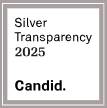How Self-Assessment Can Transform Your Healthcare: 4 Steps to Take Control

Patients and caregivers also ask
Self-assessment in healthcare is vital for both patients and caregivers as it empowers them to take an active role in managing their health. For patients, self-assessment helps identify gaps in knowledge and skills, enabling them to make informed decisions, improve health outcomes, and reduce healthcare costs. For caregivers, it provides a clear understanding of the patient’s needs and progress, enhancing their ability to offer effective support and advocate for the best possible care. Overall, self-assessment fosters better communication with healthcare providers and promotes a more proactive approach to health management.
Overall, self-assessment promotes a proactive approach to healthcare, fostering better health literacy, preparedness, and collaboration between patients, caregivers, and healthcare providers. Self-assessment can significantly improve patient and caregiver outcomes in several ways:
Enhanced Knowledge and Skills: By regularly evaluating their health status and understanding medical terms and procedures, patients and caregivers become more informed and capable of managing health conditions effectively.
Early Detection and Prevention: Self-assessment allows for early identification of potential health issues, enabling timely interventions and preventive measures that can improve overall health outcomes.
Better Communication with Healthcare Providers: With a clear understanding of their health status and needs, patients and caregivers can communicate more effectively with healthcare providers, leading to more accurate diagnoses and tailored treatment plans.
Increased Confidence and Empowerment: Knowing their strengths and weaknesses through self-assessment helps patients and caregivers feel more in control of their healthcare journey, boosting confidence and reducing anxiety.
Improved Medication Adherence and Management: Self-assessment helps track medication compliance and effectiveness, leading to better adherence and management of treatments, which can result in better health outcomes.
Customized Care Plans: By identifying specific needs and areas for improvement, self-assessment allows for the creation of customized care plans that address individual health goals and challenges.
Overall, understanding self-assessment fosters a proactive and informed approach to healthcare, leading to better health outcomes, reduced stress, and more effective collaboration with healthcare providers. Understanding self-assessment in healthcare provides several key benefits:
Empowerment and Confidence: It empowers individuals to take control of their health by identifying their strengths and weaknesses, leading to increased confidence in managing their healthcare journey.
Improved Health Literacy: Self-assessment helps individuals understand medical terms, procedures, and their own health conditions better, enhancing their ability to make informed decisions.
Early Detection and Prevention: Regular self-assessment allows for early identification of health issues, enabling timely interventions and preventive measures that can improve health outcomes.
Effective Communication with Providers: With a clear understanding of their health status and needs, individuals can communicate more effectively with healthcare providers, leading to more accurate diagnoses and tailored treatment plans.
Personalized Health Management: Self-assessment provides insights into specific areas for improvement, allowing for the creation of personalized care plans that address individual health goals and challenges.
Cost Reduction: By being proactive and informed, individuals can avoid unnecessary medical interventions and manage their health more efficiently, potentially reducing healthcare costs.
Enhanced Caregiver Support: For caregivers, understanding self-assessment helps them provide better support and advocacy for patients, ensuring that the patients receive the best possible care.
Self-assessment is a powerful tool that enhances individual involvement in health management, leading to better health outcomes, more efficient use of healthcare resources, and a more informed and empowered approach to personal health. Self-assessment contributes to effective health management in several ways:
Identification of Health Status: By regularly evaluating their health, individuals can identify changes or potential issues early on. This enables prompt action, whether through lifestyle adjustments or seeking medical advice, thereby preventing complications.
Personalized Care Plans: Self-assessment helps individuals and caregivers understand specific health needs and areas for improvement. This knowledge allows for the creation of tailored care plans that address individual health goals and challenges more effectively.
Enhanced Health Literacy: Engaging in self-assessment improves understanding of medical terms, procedures, and the overall healthcare landscape. This increased health literacy enables individuals to make informed decisions and understand the implications of their health choices.
Better Medication Adherence: Tracking symptoms and medication effects through self-assessment ensures that individuals adhere to their prescribed treatments more consistently. This can lead to better health outcomes and reduced risk of adverse effects.
Improved Communication with Providers: Self-assessment equips individuals with detailed information about their health, facilitating more effective communication with healthcare providers. This can lead to more accurate diagnoses and customized treatment plans.
Empowerment and Confidence: Regularly assessing one’s health fosters a sense of control and empowerment. Individuals become active participants in their healthcare, boosting their confidence and reducing anxiety related to health management.
Efficient Resource Utilization: By identifying health issues early and managing them proactively, self-assessment can help individuals avoid unnecessary medical interventions and use healthcare resources more efficiently, potentially reducing costs.
Comprehensive Health Tracking: Self-assessment provides a structured way to monitor various health parameters over time, allowing individuals to track progress and adjust their health management strategies as needed.
Learning about self-assessment is a critical step for patients and caregivers in taking control of health management, improving health outcomes, and fostering a more proactive and informed approach to healthcare. Patients and caregivers should learn about self-assessment for several compelling reasons:
Empowerment and Control: Understanding self-assessment empowers patients and caregivers to take an active role in managing health. This sense of control can lead to better health outcomes and greater satisfaction with care.
Enhanced Health Literacy: Learning self-assessment techniques improves health literacy, enabling patients and caregivers to understand medical terminology, conditions, and treatment options better. This knowledge is crucial for making informed decisions.
Early Detection and Prevention: Regular self-assessment can help identify health issues early, allowing for timely intervention and preventive measures. Early detection is often key to managing conditions effectively and avoiding complications.
Improved Communication: Patients and caregivers who regularly assess their health can provide more accurate and detailed information to healthcare providers. This improved communication can lead to more precise diagnoses and tailored treatment plans.
Personalized Care: Self-assessment helps in identifying specific health needs and areas for improvement, leading to more personalized and effective care plans that address individual goals and challenges.
Medication Management: By tracking symptoms and medication effects, self-assessment supports better adherence to treatment regimens, reducing the risk of errors and adverse effects.
Cost Reduction: Proactive health management through self-assessment can help avoid unnecessary medical interventions, reducing healthcare costs and making care more efficient.
Confidence and Peace of Mind: Knowing how to assess one’s health can reduce anxiety and stress, providing a clearer understanding of one’s health status and what steps to take next.
Support for Caregivers: For caregivers, understanding self-assessment techniques can enhance their ability to monitor and support the patient’s health, leading to better overall care and well-being for both the patient and the caregiver.
Now, an Introduction to Self-assessment
Self Assessment in Healthcare News – Today. patients are expected to take a more active role in managing their care. Many assume that knowing a few medical terms or having a patient portal login means they are "health-literate," but true success in healthcare requires something more—health proficiency. The reality is, there hasn’t been a structured way for individuals to develop these skills until now.
The problem: Most people are unaware of gaps in their ability to manage their care until faced with a critical health decision.
The solution: Self-assessment helps individuals recognize their strengths and weaknesses in navigating their healthcare journey, leading to informed action and better health outcomes. The best place to start is with the Healthcare Proficiency Challenge, which provides a personal gauge of where you stand. This assessment is for your information only—there are no grades, just an honest look at your current proficiency so you can take steps to improve.
Step 1: The Catalyst – A Need for Action Starting with a Self-Assessment
People don’t wake up one day deciding to take control of their healthcare. Something prompts them to assess their ability to manage care effectively:
- A new diagnosis (diabetes, hypertension, cancer, etc.).
- Becoming a caregiver for a loved one.
- Wanting to be prepared for inevitable future health events.
The key realization: Healthcare is not an "if" but a "when." Recognizing this early allows individuals to proactively evaluate their readiness to handle medical situations before they become overwhelming.
Step 2: Measuring More Than Just Literacy—Proficiency Matters
Traditional health literacy assessments focus on what someone knows but overlook how they apply that knowledge. A meaningful health literacy measurement goes deeper by evaluating:
- System navigation: Can they use patient portals, schedule appointments, and complete medical paperwork?
- Communication skills: Can they clearly articulate symptoms and concerns to providers?
- Care management: Are they tracking medications, documenting care details, and following prescribed treatments correctly?
Patient Better’s Healthcare Proficiency Challenge serves as a baseline test, providing individuals with a structured way to measure their preparedness.
Step 3: The Learning & Training Process
Becoming proficient in managing healthcare isn’t just about absorbing information—it’s about applying it effectively. Patient Better provides:
- Structured education on navigating the healthcare system and improving communication with providers.
- Practical exercises such as organizing medical records, preparing for appointments, and tracking medications.
- Guidance & support to help individuals take ownership of their care and make informed decisions.
Through this process, patients transition from uncertainty to confidence in their ability to manage healthcare challenges.
Step 4: Certification – The Proof of Proficiency
A structured self-assessment isn’t just about learning—it’s about validating one’s ability to navigate the healthcare system effectively. Certification serves as proof of proficiency and provides tangible benefits:
- Recognition by providers as an engaged, informed patient.
- Access to additional care programs like Chronic Care Management (CCM), Remote Patient Monitoring (RPM), and digital health initiatives.
- Better healthcare experiences with reduced costs, fewer medical errors, and improved outcomes.
Key Takeaway: Self-Assessment is the First Step to Better Health
Taking control of healthcare starts with an honest self-assessment. With the right tools and structured guidance, anyone can:
- Identify their strengths and gaps in healthcare management.
- Improve communication with providers.
- Reduce risks and enhance their overall healthcare experience.
Take Charge of Your Healthcare Journey Today
Empower yourself with the knowledge and skills to navigate your healthcare with confidence. The Healthcare Proficiency Challenge helps you uncover your strengths, identify areas for improvement, and take meaningful steps toward better communication, smarter decision-making, and improved health outcomes. This is your opportunity to take control, reduce uncertainty, and become an active participant in your own care. Start your self-assessment today and take the first step toward a healthier, more informed future!
End of article.
Would you like to discuss your score?
Disclaimer: This education was brought to you today by The Patient Better Project Inc., a 501(c)(3) organization dedicated to reshaping the way patients and caregivers navigate care. We are committed to empowering individuals with the knowledge and tools necessary to take control of their health journeys, ensuring that everyone can access the care they need with confidence and clarity.
The information provided here is for educational and entertainment purposes only. It is not intended as, nor should it be considered a substitute for professional medical advice, diagnosis, or treatment. Always seek the advice of your physician or other qualified health provider with any questions you may have regarding a medical condition. If you think you may have a medical emergency, immediately call 911 or your local emergency number.
For Search Engines
This article explores three transformative ways to engage in self-assessment, crucial for taking control of your healthcare journey. It explains practical techniques to evaluate and understand your health status, enhancing health literacy and improving collaboration with healthcare providers. By incorporating Patient Better’s Health Advocacy Program, readers can master self-assessment strategies to manage their health effectively and make informed decisions.
